An Implantable Cardioverter Defibrillator (ICD) is a device which is used to prevent deaths in patients with known problems of irregular heartbeats (such as sustained ventricular tachycardia and fibrillation). AN ICD is a battery-operated device that is placed under the skin and keeps track of your heart rate. It consists of a pulse generator and wires, called leads. The pulse generator consists of a battery and a tiny computer. Lead wires connect the pulse generator to specific locations in your heart. This implant device is helpful in preventing sudden death and cardiac arrest in patients who haven't had but are at a risk of a heart attack. An ICD can detect abnormal heart rhythm and then deliver an electric shock to restore the normal heartbeat in case the heart is beating too fast or abnormally.
Singapore is highly specialized in providing advanced medical facilities and care. Singapore has rapidly evolved in the technology of medical equipment and its patient-friendly facilities such as translators and local transport. Due to strong back-up provided to the healthcare sector by the government, Singapore has become one of the most important medical destinations in the world. Doctors say the take-up rate in Singapore for pacemakers and defibrillators is low compared with other countries because many patients are unaware of their heart condition and of the cardiac devices. The current annual take-up rate for pacemakers is 500 while the number is about 70 to 80 annually for defibrillators.
The cost of the ICD Combo Device Surgery involves the type of surgery, the surgery fee, the cost of any adjunctive treatments. The cost also depends on the approach used in the surgery, patient’s diagnosis and general health, type of hospital and recognition of the facility. There are several hospitals in Singapore that carry out the ICD Combo Device Surgery. The cost of the procedure may vary among different hospitals, but the difference is not much. The total cost package for the ICD Combo Device Surgery in Singapore might also include additional costs such as boarding, lodging, and food.
Treatment cost
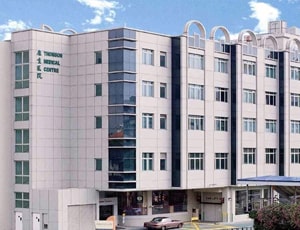
Apart from in-detail treatment procedures available, Thomson Medical Centre located in Thomson Road, Singapore has a wide variety of facilities available for International Patients. Some of the facilities which are provided by them are Accommodation, Airport Transfer, Choice of Meals, Interpreter, SIM, TV inside room. Also listed below are some of the most prominent infrastructural details:
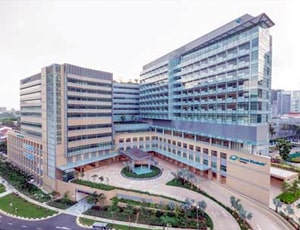
Mount Elizabeth Novena Hospital located in Novena, Singapore is accredited by JCI. Also listed below are some of the most prominent infrastructural details:
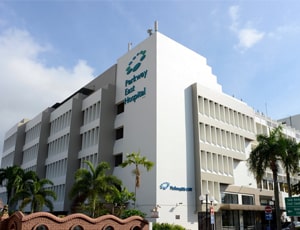
Parkway East Hospital located in Joo Chiat Pl, Singapore is accredited by JCI. Also listed below are some of the most prominent infrastructural details:

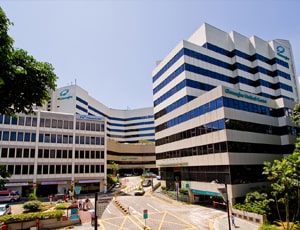
Gleneagles Hospital located in Napier Road, Singapore is accredited by JCI. Also listed below are some of the most prominent infrastructural details:
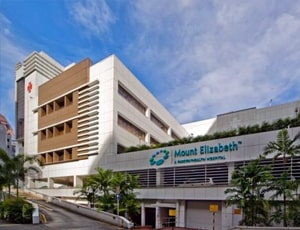
Mount Elizabeth Hospital located in Singapore, Singapore is accredited by JCI. Also listed below are some of the most prominent infrastructural details:
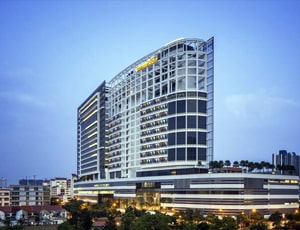
Apart from in-detail treatment procedures available, Farrer Park Hospital located in Connexion, Singapore has a wide variety of facilities available for International Patients. Some of the facilities which are provided by them are Accommodation, Airport Transfer, Choice of Meals, Interpreter, SIM, TV inside room. Also listed below are some of the most prominent infrastructural details:
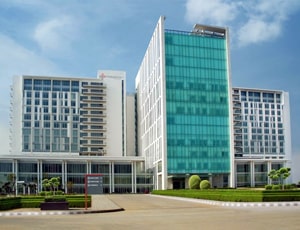
Types of ICD Combo Device (Only Surgery) in Medanta - The Medicity and its associated cost
| Treatment Option | Approximate Cost Range (USD) | Approximate Cost Range (INR) |
|---|---|---|
| ICD Combo Device Surgery (Overall) | 7438 - 10138 | 602117 - 831297 |
| ICD with Dual-Chamber Pacemaker | 7841 - 10828 | 642151 - 890722 |
| ICD with Single-Chamber Pacemaker | 7258 - 10242 | 589253 - 811949 |
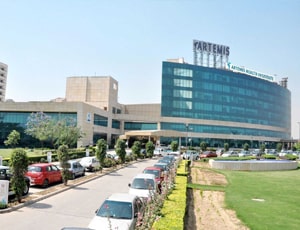
Types of ICD Combo Device (Only Surgery) in Artemis Health Institute and its associated cost
| Treatment Option | Approximate Cost Range (USD) | Approximate Cost Range (INR) |
|---|---|---|
| ICD Combo Device Surgery (Overall) | 7311 - 10183 | 598684 - 824863 |
| ICD with Dual-Chamber Pacemaker | 7833 - 10891 | 645288 - 868089 |
| ICD with Single-Chamber Pacemaker | 7394 - 10228 | 587308 - 819968 |
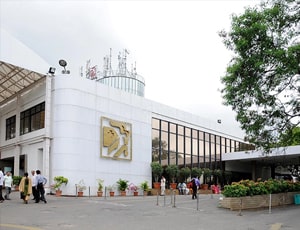
Types of ICD Combo Device (Only Surgery) in Apollo Hospitals and its associated cost
| Treatment Option | Approximate Cost Range (USD) | Approximate Cost Range (INR) |
|---|---|---|
| ICD Combo Device Surgery (Overall) | 7445 - 10160 | 592518 - 840848 |
| ICD with Dual-Chamber Pacemaker | 7773 - 10913 | 649866 - 876972 |
| ICD with Single-Chamber Pacemaker | 7459 - 10311 | 610132 - 838278 |
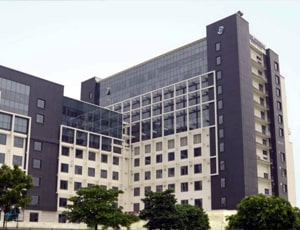
Types of ICD Combo Device (Only Surgery) in Venkateshwar Hospital and its associated cost
| Treatment Option | Approximate Cost Range (USD) | Approximate Cost Range (INR) |
|---|---|---|
| ICD Combo Device Surgery (Overall) | 6581 - 9175 | 540022 - 750395 |
| ICD with Dual-Chamber Pacemaker | 7111 - 9667 | 583676 - 789356 |
| ICD with Single-Chamber Pacemaker | 6628 - 9120 | 540718 - 747974 |
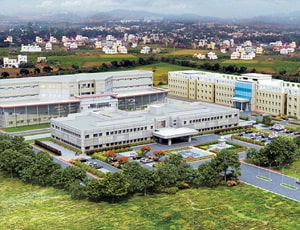
Types of ICD Combo Device (Only Surgery) in Global Health City and its associated cost
| Treatment Option | Approximate Cost Range (USD) | Approximate Cost Range (INR) |
|---|---|---|
| ICD Combo Device Surgery (Overall) | 7333 - 10088 | 594672 - 824979 |
| ICD with Dual-Chamber Pacemaker | 7730 - 10596 | 649568 - 858328 |
| ICD with Single-Chamber Pacemaker | 7293 - 10274 | 604746 - 825761 |
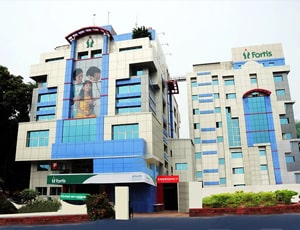
Types of ICD Combo Device (Only Surgery) in Fortis Malar Hospital and its associated cost
| Treatment Option | Approximate Cost Range (USD) | Approximate Cost Range (INR) |
|---|---|---|
| ICD Combo Device Surgery (Overall) | 6585 - 9157 | 542422 - 746484 |
| ICD with Dual-Chamber Pacemaker | 7123 - 9678 | 584626 - 790663 |
| ICD with Single-Chamber Pacemaker | 6624 - 9143 | 540110 - 747052 |

Types of ICD Combo Device (Only Surgery) in Sterling Wockhardt Hospital and its associated cost
| Treatment Option | Approximate Cost Range (USD) | Approximate Cost Range (INR) |
|---|---|---|
| ICD Combo Device Surgery (Overall) | 6615 - 9115 | 539638 - 749767 |
| ICD with Dual-Chamber Pacemaker | 7080 - 9627 | 585404 - 787658 |
| ICD with Single-Chamber Pacemaker | 6585 - 9101 | 542915 - 749147 |
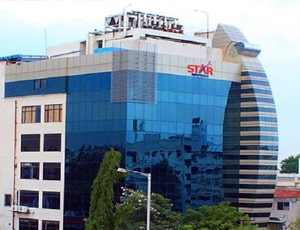
Types of ICD Combo Device (Only Surgery) in Star Hospitals and its associated cost
| Treatment Option | Approximate Cost Range (USD) | Approximate Cost Range (INR) |
|---|---|---|
| ICD Combo Device Surgery (Overall) | 6115 - 8282 | 494363 - 684808 |
| ICD with Dual-Chamber Pacemaker | 6454 - 8940 | 534596 - 728111 |
| ICD with Single-Chamber Pacemaker | 6160 - 8528 | 495060 - 700437 |
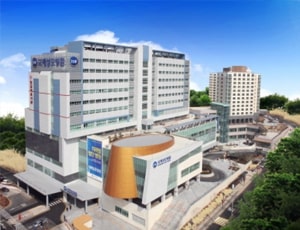
International St. Mary's Hospital located in Seoul, South Korea is accredited by JCI. Also listed below are some of the most prominent infrastructural details:
An implantable cardioverter-defibrillator (ICD) is a small device powered by a battery, implanted in the chest. Its primary function is to detect and halt irregular heartbeats, known as arrhythmias, by continuously monitoring the heartbeat and delivering electric shocks when necessary to restore a regular heart rhythm.
An ICD may be recommended if you have a dangerously fast heartbeat, such as ventricular tachycardia or ventricular fibrillation. It may also be prescribed if you are at high risk of experiencing dangerous irregular heartbeats, often due to a weakened heart muscle.
It's important to note that an ICD is different from a pacemaker, which is designed to prevent dangerously slow heartbeats.
An ICD, or implantable cardioverter-defibrillator, is a type of cardiac therapy device. There are two primary types:
A traditional ICD is surgically implanted in the chest, with wires (leads) connecting to the heart.
Beneath the skin on the side of the breast, beneath the armpit, is a subcutaneous ICD (S-ICD). It utilizes a sensor, known as an electrode, which runs along the breastbone. Unlike the traditional ICD, the S-ICD does not directly contact the heart. It is larger compared to the traditional ICD.
During the procedure to insert an ICD, a healthcare professional inserts an intravenous (IV) line into your forearm or hand to administer sedative medication for relaxation. Electrodes are placed on your chest and sometimes legs to monitor your heartbeat continuously.
Depending on the situation, the Patient may be awake or under general anesthesia. The doctor makes a small incision in the chest area and inserts one or more flexible wires, known as leads, into a blood vessel near the collarbone. These leads are guided to the heart, where they attach to the heart. The other ends are connected to a device called a shock generator, which is implanted under the skin below the collarbone.
The procedure typically lasts a few hours. Once the ICD is in place, it is tested and programmed according to your specific heart rhythm needs. Testing may involve temporarily increasing your heart rate and delivering a shock to restore a regular rhythm.
The patient will go home on the day post-ICD procedure.
The area where the ICD was placed got swollen and became tender for some days or weeks. The doctor might prescribe pain medicine, Avoid taking aspirin and ibuprofen. They might increase the risk of bleeding.
Patients should avoid sudden movements for about eight weeks after getting an ICD. Patients should also limit other activities such as Driving. The doctor will provide you with some instructions regarding your movement and other daily activities.
Your doctor might also forbid you from doing any energetic sports activities that may lift the left arm above the shoulder. for instance, golf, tennis, swimming, bowling, vacuuming, and Heavy lifting.
Ask your healthcare adviser for the best multiple options and choose the one that meets your expectations
ICD Combo Device (Only Surgery) package cost in Singapore has different inclusions and exclusions. The ICD Combo Device (Only Surgery) package cost usually includes all the expenses related to pre and post surgery expenses of the patient. The treatment cost usually includes the expenses related to hospitalization, surgery, nursing, medicines, and anesthesia. Post-surgical complications, new findings and delayed recovery may have an impact on the total ICD Combo Device (Only Surgery) cost in Singapore.
There are many hospitals that perform ICD Combo Device (Only Surgery) in Singapore. Some of the best hospitals for ICD Combo Device (Only Surgery) in Singapore include the following:
After ICD Combo Device (Only Surgery) in Singapore, the patient is supposed to stay in guest house for another 14 days. During this time, the patient undergoes medical tests and consultations. this is to ensure that the treatment was successful and the patient us safe to return.
There are certain additional cost that the patient has to pay apart from the ICD Combo Device (Only Surgery) cost. The per day extra expenses in Singapore per person are about USD 50 per person.
Some of the best cities in Singapore which offer ICD Combo Device (Only Surgery) are:
After ICD Combo Device (Only Surgery), the patient is supposed to stay for about 2 days in the hospital for recovery and monitoring. This phase is important to ensure that the patient is recovering well and is clinically stable. During this time, several tests are performed before the patient is deemed suitable for discharge.
The average rating for ICD Combo Device (Only Surgery) hospitals in Singapore is 2.7. This rating is calculated on the basis of different parameters such as attitude of the nurses, cleanliness, quality of food and the pricing policy.
There are more than 6 hospitals that offer ICD Combo Device (Only Surgery) in Singapore. The above mentioned hospitals have the required infrastructure and a dedicated unit where patients can be treated. Apart from good services, the hospitals are known to follow all standard and legal guidelines as dictated by the local medical affairs body or organization.
Some of the top medical specialists for ICD Combo Device (Only Surgery) in Singapore are: